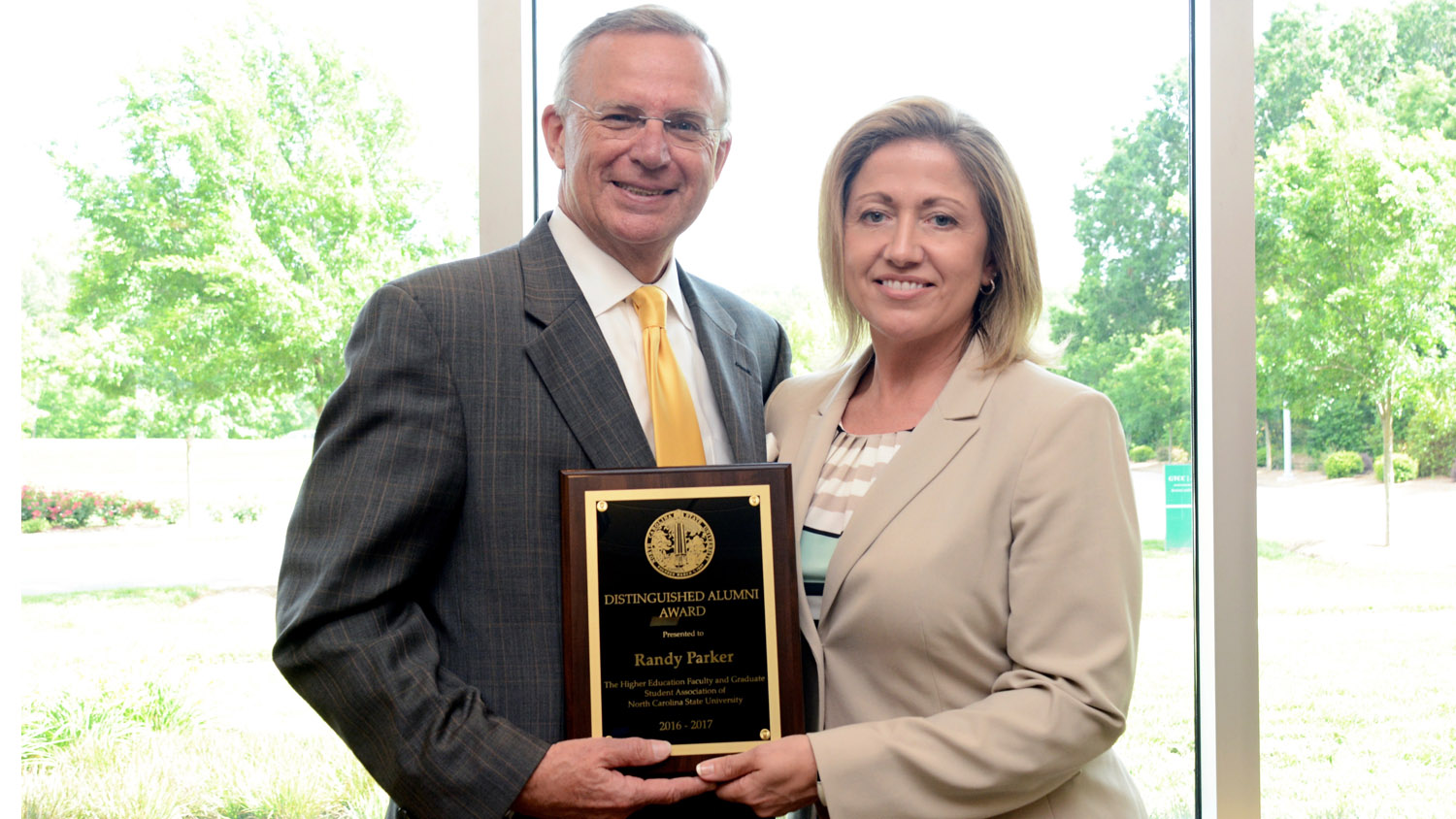Why I Give: Former Community College President Randy Parker ’11EDD to Provide Support for Next Generation of Community College Leaders

Editor’s Note: This is part of a “Why I Give” series in which NC State College of Education alumni, students, faculty and staff share why they support the college.
When Randy Parker ’11EDD graduated from Lenoir Community College with an associate’s degree in mechanical drafting in 1972, it was his first step toward a successful career in higher education.
He went on to earn his bachelor’s degree in mechanical engineering and technology at The University of North Carolina at Charlotte and a master’s degree in mechanical engineering at NC State University. Soon, he was back at Lenoir Community College, working first as a drafting instructor before moving into numerous leadership roles.
After more than two decades at Lenoir Community College, Parker decided it was time to take the next step, to become a community college president.
In 2004, he became president of Vance-Granville Community College and, to grow his knowledge, he enrolled in NC State College of Education’s Doctor of Education in Community College Leadership program.
“NC State was recognized as being one of the best community college programs,” Parker said. “We had students from all over the country.”
Parker not only earned his doctoral degree in 2011, but that year he also stepped into the role of president at Guilford Technical Community College. Eight years later, he retired, but not before receiving the I.E. Ready Distinguished Leader Award, which recognizes an NC State graduate for exceptional leadership within the community college system, and the NC State College of Education’s 2017 Higher Education Distinguished Alumni Award.
Now, through an endowment, he is giving back to the College of Education’s Community College Leadership program to support future community college leaders in gaining the knowledge and tools they need to make a difference.
The following is edited for length and clarity.
Why do you give to the NC State College of Education?
I owe NC State a lot, and I wanted to give back. I’ve been very blessed. I’ve had two presidencies and an exciting career in over 40-plus years in the North Carolina Community College System. It would be just a small contribution that I feel like I could give back to NC State for all NC State has done to help my career.
What do you hope to see happen as a result of your gift?
It’s all about leadership. When you start thinking about some of the smaller community colleges in rural areas, they are just as important and probably more important than your bigger community colleges because, typically, your rural community college is the center of cultural training and education for the community, above high school education.
We need good leaders who can advance the community’s needs and continually innovate for workforce development, student services and student needs.
We need to make sure that these leaders have access to the tools, the knowledge and the opportunities to build their confidence, so they can do that.
Why do you feel it’s important to give back?
It’s all about helping people and giving back. My goal is to help somebody support our community colleges. It’s all about making our state better, our communities better and our community colleges better. Community colleges gave me an education and allowed me to get more degrees, three in engineering and one in higher education and leadership, and it all started at Lenoir Community College. Community colleges need good leaders to survive and thrive for their communities.
What was the last thing that inspired you?
A lot of students come to our colleges downtrodden and lacking confidence. Then to see them over the time they’re in college, to prosper, to be happy, to be upbeat, to have high self-esteem, to make good grades — that was always my motivating factor.
- Categories:


